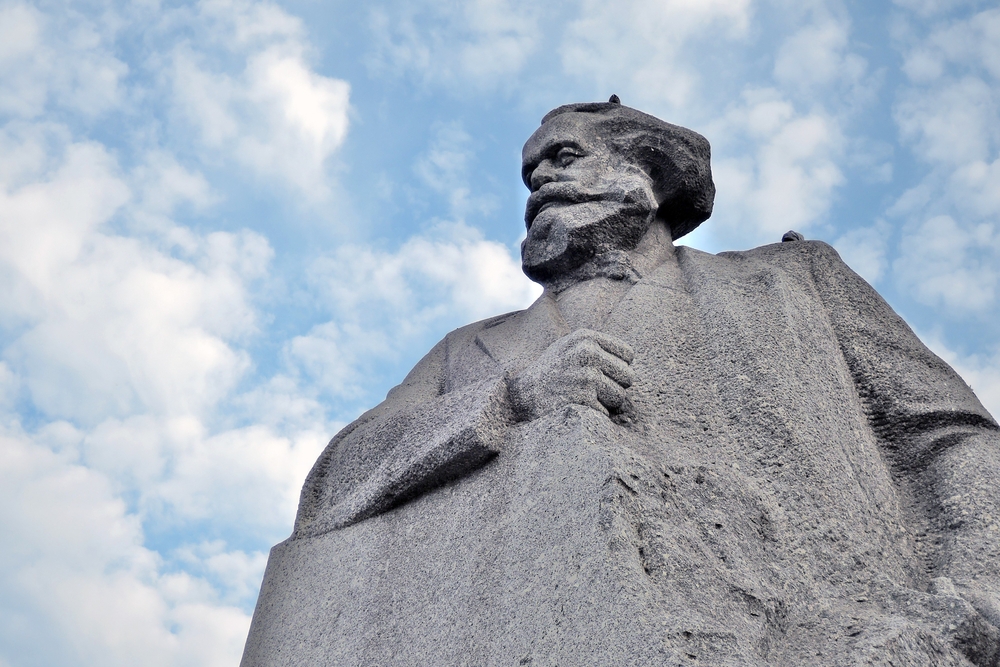Karl Marx famously concluded in his 1845 Theses On Feuerbach with his eleventh thesis: “Philosophers have hitherto only interpreted the world in various ways; the point is to change it.” How this change from analysis to activism can be justified in light of Marx’s own materialist conception of history is an enduring puzzle. Lester DeKoster, in his always insightful Communism & Christian Faith, states it is, “a problem more easily ignored than explained.” Marx’s tomb itself has literally etched this curious problem into stone. The activist orientation of thesis 11, not his crass historical materialism, is perhaps Marx’s most enduring academic legacy, of which the New York Times’ 1619 Project is just one example.
Peter T. Leeson, the Duncan Black professor of economics and law at George Mason University, sees the same sort of tension between analysis and activism within economics. In his 2019 Journal of Institutional Economics article, “Logic is a harsh mistress: welfare economics for economists,” he outlines this tension and proposes a way forward that makes room for positive social change while preserving the integrity and soundness of economic analysis.
At the core of this conflict between analysis and activism is the fact that:
The economic approach to human behavior is grounded in a simple assumption: individuals maximize. Every economic explanation – from Gary Becker and Richard Posner’s (2004) explanation of suicide to Richard Thaler’s (1980) explanation of the “endowment effect” – assumes maximization. How strange, then, that few economists accept one of maximization’s most straightforward implications: every observed institution is efficient. …
I speculate that economists resist what maximization implies about institutional efficiency because they think that efficiency-always precludes them from improving the world, and hope of improving the world is what attracted them to economics in the first place.
The economic way of thinking is not only deeply counterintuitive but often deeply at odds with our own sensibilities:
“But what about agricultural subsidies in the United States?” They’re efficient. “Autocracy in Turkmenistan?” Ditto. “Communism in North Korea?” The logic doesn’t change just because the example becomes more extreme. And somewhere around here is where most economists who might have been on board jump off.
What economic analysis provides is not a moral justification for the way the world is but rather a causal account of why people behave as they do within a world of constraints. This is the ground upon which economists can offer comparative institutional analysis:
Turkmenistan’s institutions produce (far) smaller net benefits than South Korea’s, and South Korea’s institutions produce (somewhat) smaller net benefits than those in the United States. Each population’s institutions maximize net benefits, but the maximums differ because of differences in the severity of their constraints. Is there a social welfare claim to found here? Well, there’s this: it’s better to be less severely constrained than to be more so.
The deeply counterintuitive economic way of thinking is not an engineering science, which allows us to build mathematical and statistical models to solve the world’s problems, but rather an analytical lens that allows us to see the elaborate network of the causes behind social problems.
To put this in Thomistic language, the language of the four causes, economics assumes the efficient cause of social reality is “individuals maximizing” in order to investigate formal causes (constraints, ideas, etc.) through comparative institutional analysis. Economics itself has, as Ludwig von Mises argued, nothing to say about final causes (the purpose and ultimate end of persons or things): “It is a science of the means to be applied for the attainment of ends chosen, not, to be sure, a science of the choosing of ends.”
The choosing and discerning of final causes (or ends) is the domain of philosophy and theology, the study of which is essential to human flourishing, “For from him and through him and for him are all things. To him be the glory forever! Amen” (Romans 11:36). To attempt to smuggle an account of human flourishing into the backdoor of economics itself is a disservice to this analytical science which, when practiced within its limits, has much to teach us about the causes of social problems. Such sleight-of-hand accounts of human flourishing, divorced from their proper theological and philosophical context, lead to a stiflingly reductionist and technocratic account of the common good. The integrity of economics, as well as theology and philosophy, is compromised when we fail to realize that while all life is economic, economics is not all of life.
(Photo credit: Shutterstock.)

